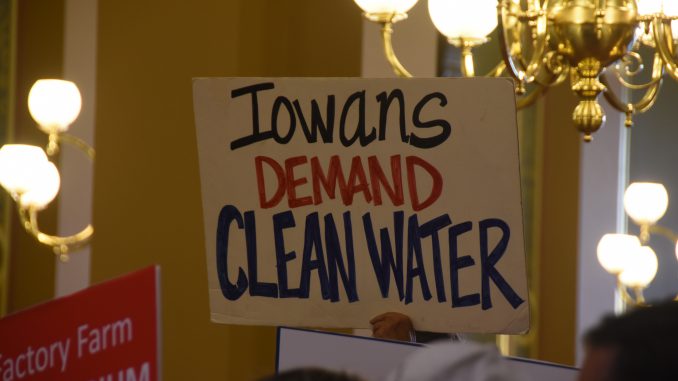

Our economy and quality of life depend on a healthy environment. That’s why we’re always looking for solutions to Iowa’s water quality challenges.
The Legislature established a Water Quality Initiative in 2013 as part of a strategy to reduce to nitrogen and phosphorus in our waterways by 45 percent. Over the last three years, more than 2,900 farmers have committed more than 294,000 acres to the cause.
During the 2016 session, legislators approved several initiatives to build on our ongoing water quality improvement efforts, including:
- Cleaning up the last of Iowa’s Leaking Underground Storage Tanks (HF 2464).
- Increasing penalties for illegal dumping (HF 2385).
- Committing $16.7 million from the Rebuild Iowa Infrastructure Fund for water quality and lake restoration efforts (SF 2324).
- Providing $3.2 million for soil and water conservation projects through Iowa’s popular Resource Enhancement and Protection program (HF 2454).
- Approving $18.8 million in the Agriculture & Natural Resources Budget for water quality and soil conservation projects, research and facilities (HF 2454).
The Iowa Department of Agriculture is using $9.6 million to help implement the Water Quality Initiative this year. These funds allow the Department to continue pushing for improved farming practices through cost share assistance and intensive work in watersheds that need the most attention.
Last month, $3.8 million in cost share funds were awarded to help more than 1,900 farmers in 97 counties install cover crops, no-till or strip till, and other practices that prevent chemicals from making their way into our waterways. The $3.8 million in state funds will be matched by nearly $6 million from Iowa farmers.
Iowa also has 45 projects throughout the state to help implement and demonstrate good water quality practices. This includes 16 watershed projects, 22 urban water quality demonstration projects and seven projects focused on expanding water quality practices. More than 100 participating organizations are providing $19.3 million to supplement more than $12 million from the state.
Other water quality funding includes $35 million in state revolving loan funds for clean water and waste water projects. When you add in federal funding, more than $350 million has gone to programs with water quality benefits in the last year.
